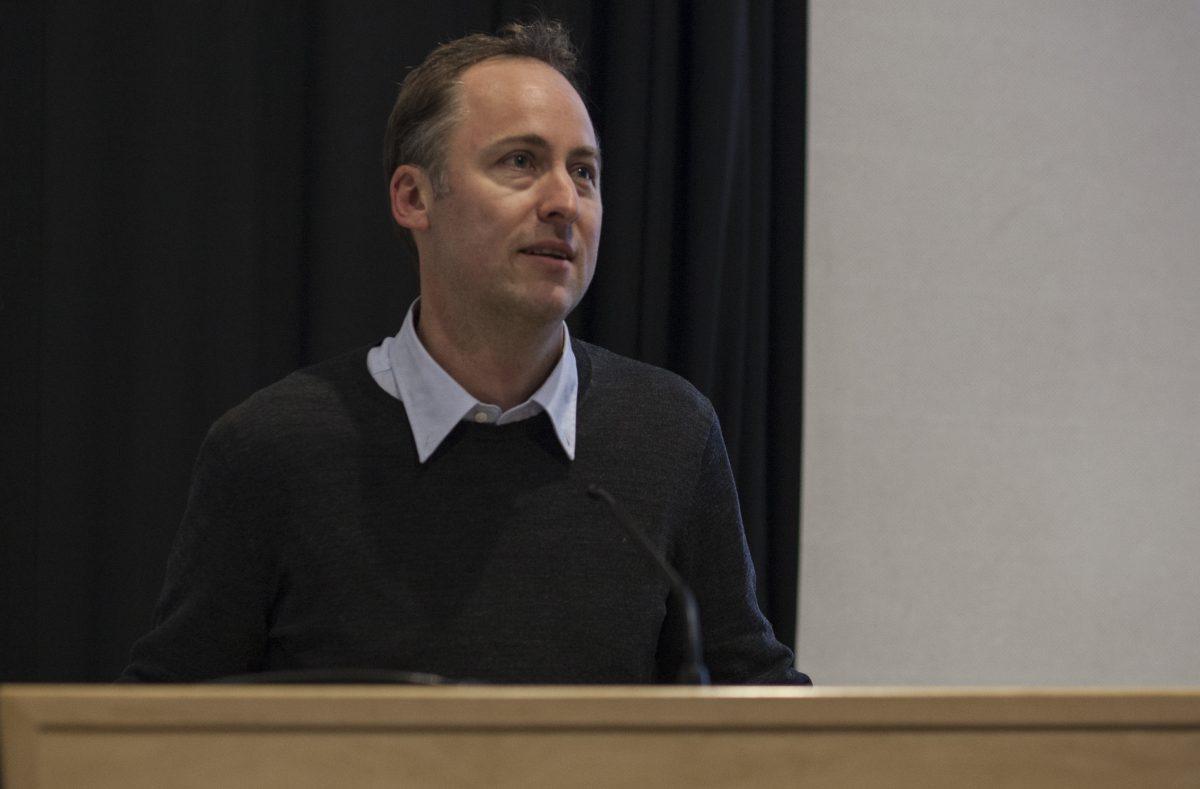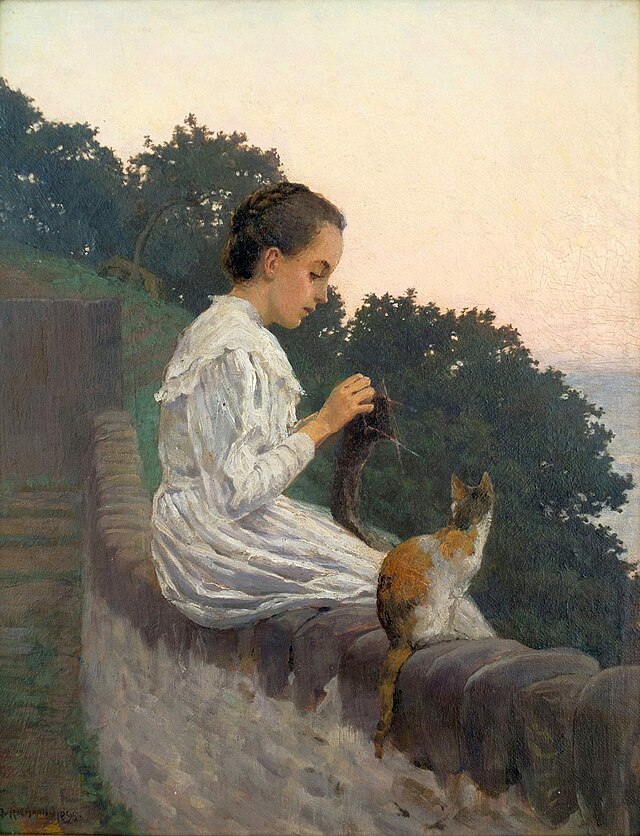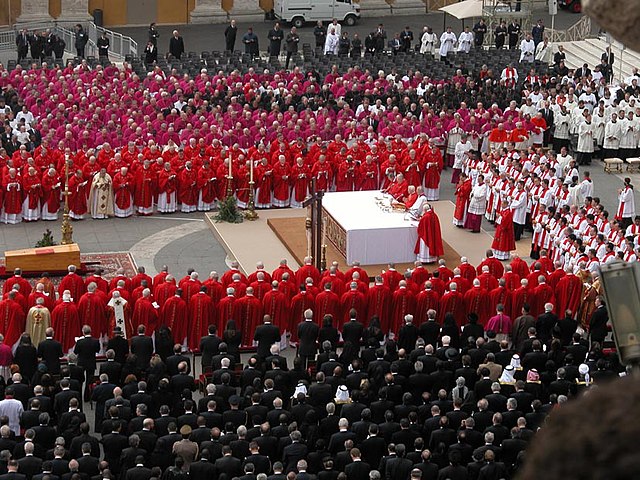Australian Pulitzer Prize-winning and ENG 351 The Robert Garis Seminar in Non-Fiction Prose professor Sebastian Smee gave a lecture Tuesday in Collins where he outlined and read passages from his new book “The Art of Rivalry,” which details the turbulent interpersonal relationship between major artists, such as the friendship of Lucian Freud and Francis Bacon.
Approximately 50 professors, alumnae and students attended the event. Smee accompanied his own lecture and readings with a slideshow of the paintings that he discusses in his book and photos of people who are mentioned in the book. Magdalena Sowder ’18 said that he was a brilliant storyteller and was able to appeal to a large number of students because his work taps into interests in the arts and literature.
“[Smee] opened his talk by expressing his fondness for Wellesley and intermittently broke his story to talk directly to the audience,” Sowder said. “This, coming from a respected author felt flattering and encouraging to me, and I imagine this feeling was reflected throughout the students in the room.”
Smee wrote “The Art of Rivalry” because he was fascinated by the roles that certain artists played in stimulating other artists to make breakthroughs. “I felt that there was an intimacy—at times an almost tragic intimacy—in certain key relationships that was moving in human terms, but also ended up being hugely consequential artistically,” Smee said. “I wanted to know more.”
Smee himself served as a primary source for the book, having gotten to know Freud quite well when he lived in London. Knowing Freud and Bacon had had a falling out, it took Smee years to work up the nerve to ask Freud about their friendship. “When I finally did,” Smee said, “I was told a remarkable story. And the way it was told made it absolutely clear to me that a big part of Freud was still in love with Bacon and that missed him greatly.”
Although Smee’s lecture will focus on his most recent publication, he has also written the books, “Lucian Freud” and “Side by Side: Picasso v Matisse.” Smee stated that the relationships that existed between all of the artists he wrote about were extremely dynamic and impacted the artists involved in fascinating ways. For instance, Edgar Degas influenced Freud and Bacon, and Picasso and Matisse both revered Degas and Manet as well. Meanwhile, the Steins collected Picasso and Matisse pieces.
Although Smee’s works mainly focus on comparative analyses, the critic additionally tries to focus on honing others’ writing talents, especially in his Garis seminar.
“In the Garis Seminar, I have hoped only to help students realize what is involved in writing smart and mature non-fiction aimed at a general readership,” Smee said. “Most of [the students] seem to have a pretty good idea already.”
Smee has also incorporated Robert Garis, a respected critic and Wellesley’s English department chair, into the curriculum. Smee said that he encourages students to write with passion, maturity and a sense of urgency about subjects they care about.
“Students’ results have amazed me,” Smee said. “For me, it’s a huge privilege.”
Despite being a professor, Smee still sees himself as a student. During his time at the Boston Globe, he said that he learned three important lessons.
“Firstly, people around here tend to underestimate how great New England’s art museums are,” Smee said. “They are in fact among the very best in the world. Secondly, there is an enormous public appetite for art and reading about art. Thirdly, having a healthy, trenchant, lively and engaged newspaper aimed at the widest possible readership is enormously important to the health of our society.”
As a result, he hopes that Wellesley students understand this concept and appreciate journalism as well. Furthermore, Smee hopes that any student who wants to pursue journalism should unequivocally. “We need your perspective,” he explained. “Be ‘partial, political, passionate,’ as Baudelaire said. It gets deeper, more involving and wilder the longer you do it, as you become increasingly aware of all the things you don’t know.”
Smee will continue writing for the Boston Globe after finishing this semester at Wellesley, and in January will start a year-long sabbatical in his home country of Australia.







